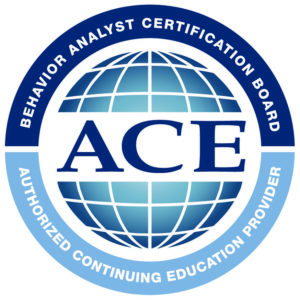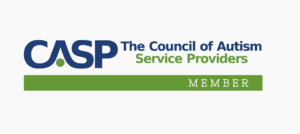Each child is unique. We understand that children on the autism spectrum have needs that can vary widely, which is why we personalize our behavioral therapy for autism spectrum disorder programs for every area of development. Behavior planning is the main point of focus throughout many of our programs.
Autism Behavioral Therapy
In Applied Behavior Analysis (ABA) therapy, behavior planning looks at the areas of behavior your child is expressing. We identify areas of inappropriate behaviors and focus on supplementing them with functional behaviors.
To identify and understand those behaviors, we set up a free consultation meeting to sit down with you and your child. During this meeting, we will get a better understanding of your child’s needs and the behaviors they are expressing.

Fine & Gross Motor Skills
Fine and gross motor skills are an important milestone while learning to participate in many activities in life. We use our motor skills every day to help us physically navigate the world around us. Unfortunately, developing these skills can be extremely challenging for many children with autism. For most parents, “missed milestones” in fine and gross motor skills are one of the earliest signs they notice in their child’s delayed progression.
Through our personalized ABA therapy program, we pinpoint which developmental skills your child needs in order to complete their daily activities and enjoy life to the fullest. Then, we work alongside you to build a structured plan around those needs. We start from a structured program based on years of research and experience, and review those goals on a weekly basis to ensure that their specific needs are being met.
Fine Motor Skills are a child’s ability to make movements using the small muscles in their hands, wrists, fingers and feet.
Gross Motor Skills are a child’s ability to involve the larger muscles in their body such as their arms, legs and torso.
Examples include:
- Learning to hold a spoon or fork and eat independently
- Pinch small objects with thumb and pointer finger
- Learning to write, draw, use scissors, etc
- Holding objects, or transfer objects between hands
- Walking, running, jumping, and other movement based activities
Independent Living Skills
By teaching fine and gross motor skills in small steps and practicing them on a daily base, your child is able to practice and learn these skills more quickly and take steps towards generalizing their skills outside of therapy. We help each child become more independent in a variety of aspects of life.


Language & Communication
Communication is an important life skill that children learn at a very young age. Unfortunately, it is common for many children with autism to have delays in speech, and difficulty in communicating others. Our ABA Therapy program addresses language and communication in an effort to help children learn to communicate their needs.
Our curriculum has a strong emphasis on teaching communication and language. From day one we focus on teaching our clients how to advocate for themselves by requesting items and activities they want and need.
Building From a Firm Foundation
Each program in our curriculum helps our clients to build a foundation of language skills, including labeling items in a variety of ways, improving pronunciation through our verbal imitation program and teaching conversation skills.
Learning Through Play
Our programs are reviewed and adjusted on a weekly basis to ensure that that our goals are aligned to your child’s specific needs, and those needs are being met. We focus on teaching each child age-appropriate play skills to help them interact with their peers and learn from their environment.
Many children learn through play, which is why we include it in our programs. When we put together a plan, we start from a structured approach based on years of research and experience, and from there, we personalize it to your child’s needs. These often include play-based skills.
Understanding What Your Child Enjoys
Children play in many ways, whether alone, with their parents or in a group of peers. Our goal is to help your child learn to play appropriately across situations and to enjoy playing in a variety of settings.


Autism Teaching Strategies
At some point, school is a big part of every child’s life.
When it is time for a child to begin school, there are many new experiences waiting for them and a lot of new skills they may need to practice. Our kindergarten readiness program for children with autism covers what a child will face when they first enter school. Our Behavior Technicians will do their best to prepare their clients to transition into a school setting when that time comes.
Coordinating Care
Through utilizing our curriculum and coordinating with teachers and schools, we provide the extra support that our clients need in order to be successful in school. Having an understanding of what is happening at school helps build a comprehensive and appropriate treatment plan.
Autism Self-Help Training
A Focus on Independence
Whether it’s brushing teeth, getting dressed, transitioning between settings or participating in family routines, we cover it all. Our goal is to help your child become as independent as possible. We also specialize in toilet training, feeding programs and sleeping programs. When we teach our clients self-help skills, we ensure that these skills are learned not just with our therapists, but that they are generalized with parents and family members.
Toilet Training
Our program includes both an intensive and coordinated toilet training process. Our team of therapists is ready to help your child achieve this self-help milestone.
A child with autism may experience challenges in communication, sensory processing and behavior control that may impact their toilet training. Some children can effectively use the toilet in a few weeks. Others, however, require a longer amount of time. We will adapt your child’s therapy plan to meet their specific needs and work with them as long as it takes to develop this necessary skill.
It is also essential to seek a medical evaluation before beginning intensive potty training for your child with autism. If your child has intestinal issues or underlying medical problems, these things may be the primary cause of toilet training difficulties. If this is the case, your child is not entirely in control when it comes to using the toilet, and creating consequences for these actions will only worsen the issue.
If your child is not experiencing medical issues relating to their ability to go to the bathroom, other factors may be contributing to potty training difficulties. Your child should see one of our professionals for toilet training for children with autism if they experience the following:
- Your child exhibits little interest in the toilet, no concerns about soiling themselves or a general lack of being ready for toilet training.
- Your child has a phobia of the smells or sounds or the toilet itself.
- You notice your child is experiencing fear of or disinterest in using toilets at school or other public places.
At EAS, our autism potty training services use assessment and observation to identify the main cause of your child’s potty training difficulties. After determining the issue, our therapists will create a treatment plan and use our ABA method and positive reinforcement to encourage beneficial self-help behaviors. Depending on your child’s needs, we may use visual supports to help them develop a routine. We also offer the option to teach how to stay dry at night and ask to use the bathroom as separate therapy sessions.


Developing Social Skills
Building social skills is a primary focus of our program, and a building block for success in many other areas of development. Every piece of our program interacts to create a comprehensive plan for your child, and social interaction is a key component in linking the entire program. One of the most important steps in the process is learning to make consistent eye contact; helping your child understand where to look to get the input that they need to be successful.
Building On Interactive Play
Beginning with eye contact, we break social skills down into small increments and lead each child on their way to engaging in interactive play, reciprocal conversation, responding to initiations from others and initiating play and conversation independently.
Start With A Plan
Using the information gained from the consultation, our team will work alongside you to build a behavioral therapy for ASD program tailored to those needs.
We start from a structured program based on years of research and experience. From there, our Behavior Technicians will individualize your child’s program every week to ensure our services are meeting your child’s specific needs.
Our plans will align with your child’s unique needs and highlight the behavioral goal they are working toward. Generally, most therapy plans work on reducing negative behaviors or improving social skills or communication.
Specific ABA Therapies
Multiple types of ABA therapies are available to assist your child. Depending on their age, challenges and other factors, they may receive one of these ABA therapy models or a combination of therapies:
- Early Intensive Behavioral Intervention (EIBI): This program is ideal for children under the age of five and helps your child develop skills such as communication, social interaction and adaptability.
- Trial training: This therapy program uses a structured task completion system to teach your child skills and reward them for positive behaviors.
- Pivotal response training: During this therapy program, your child will take the lead during a play or learning activity. During the exercise, a Behavior Technician will target pivotal areas of their development while providing natural reinforcements.
- Early Start Denver Model (ESDM): This therapy program is ideal for children between 12 and 48 months and uses play to boost language and cognitive skills.
- Verbal behavior interventions: During verbal behavior interventions, your child will not focus on words as labels but on why we use words and how they help us communicate ideas.
Our BCBAs and their technician teams will work closely with your family to ensure our therapy plans are effective. We will work to build an individualized behavior therapy plan specific to your child’s needs. Our therapy plans also teach parents, caregivers and teachers how to avoid reinforcement that encourages negative behavior, such as giving in to temper tantrums.


Evaluations
Your child’s therapy treatment plan may shift based on their responses and changing needs. Throughout treatment, their Behavior Technician will monitor their progress and analyze what strategies work with your child.
The Goal of ABA Therapy
The goal of your ABA therapy treatment depends upon your child’s needs. Some improvements parents and caregivers have seen in their children include:
- Increased interest in children and adults in the room with them.
- Improved communication skills.
- The ability to ask for what they want.
- Focus during school and when doing homework.
- Limited negative behaviors.
- Fewer emotional outbursts.




